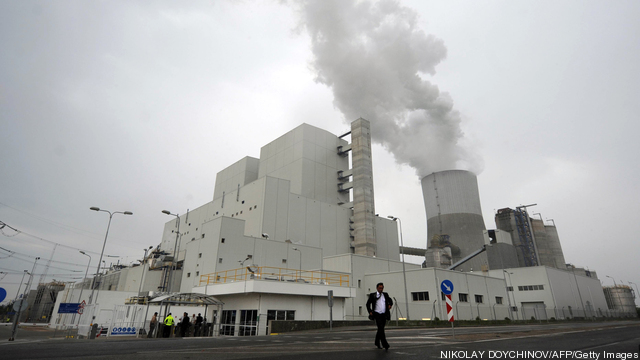Australia faces an unprecedented oversupply of energy according to the country’s energy market operator. “For the first time in the history of the National Electricity Market, no new thermal baseload electricity generation is required over the next decade…due to the continuing decline in electricity consumption,” Australian Energy Market Operator said in the report.
That decline is due to a convergence of several factors – greater energy efficiency, more rooftop solar, and the recession that heavily impacted manufacturers who use lots of electricity.
Electricity consumption continues to decline in Australia. As a result, Australia will produce up to 8,950 megawatts of surplus generation in the next year alone. In fact, “By 2023-24 between 1,100 MW and 3,100 MW of capacity could still be withdrawn from each of New South Wales, Queensland, and Victoria without breaching the reliability standard.” Even if consumption climbs for the next 10 years straight.
Observers speculate that the country’s existing coal-fired plants may no longer be viable. And that the government’s renewable energy targets may be too high. Prime Minister Tony Abbott’s conservative government has already repealed the country’s carbon tax. Now it is eyeing a reduction in its renewable electricity mandates.
Europe’s power glut
Meanwhile, European utility RWE AG now says it will close a total of 13 unprofitable fossil-fuel power plants, three more than previously announced. The reason, according to the Wall Street Journal is that “subsidized renewable energies have created an energy glut in Europe.”
Although headquartered in Germany, RWE operates power plants across Europe. RWE’s biggest rival, E.ON SE, had already announced widespread plant closures due to the oversupply situation.
In a statement, RWE said: “The ongoing expansion of renewable energy is increasingly leading to reductions in the utilization of conventional power plants. At the same time, wholesale prices for electricity have been in freefall for some time, and are now at only around €0.35/kWh.”
RWE’s chief executive Peter Terium wants government to intervene to keep some fossil-fuel plants open to ensure reliable baseload power. He points to Britain as an example, which has set up a capacity market. Utilities are paid not just for the power they produce, but also for guaranteeing backup capacity if necessary to prop up the grid.
Jesse Berst is the founder and Chief Analyst of SGN and Chairman of the Smart Cities Council, an industry coalition.

